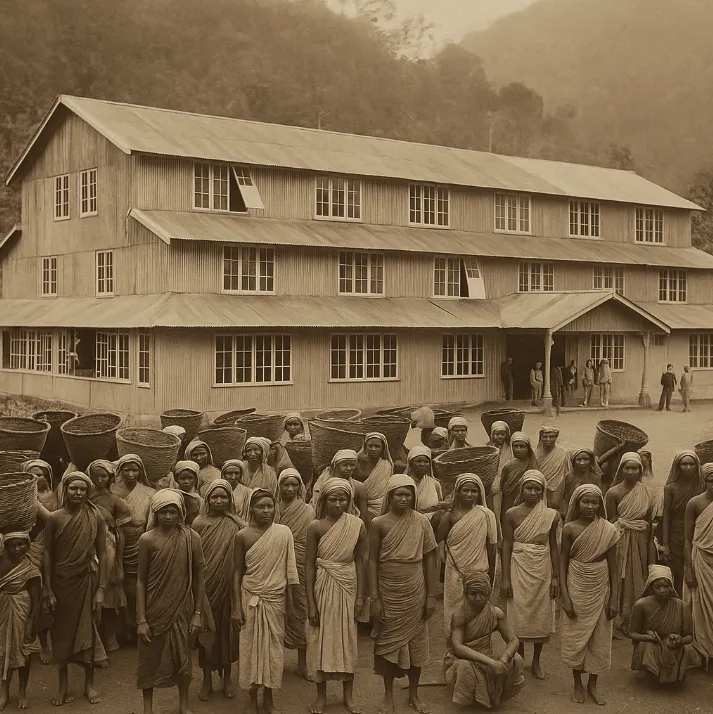
Ceylon to Sri Lanka: The Colonial Tea Legacy
Sri Lanka’s tea is world-famous—but behind the bright brews of “Ceylon tea” lies a rich, complex colonial history. Discover how a global tea brand was born through empire, labor, and legacy.
From Forests to Fields
Before tea, Sri Lanka was a land of lush forests and vibrant ecosystems. Under British colonial rule—when the island was known as Ceylon—vast areas were cleared for coffee plantations. That is, until a devastating fungal blight in the 1860s changed everything.
By the 1870s, British planters turned to Camellia sinensis—the tea plant—as their next cash crop. Seeds were imported. Hillsides were reshaped. Local ecosystems and labor were transformed. A global tea industry took root—but not without a cost.
A Brew Built on Empire
Tea in Ceylon wasn’t just a beverage—it was a colonial enterprise. The industry thrived on seized land and disregarded indigenous knowledge. Thousands of Tamil laborers were forcibly relocated and worked under harsh, exploitative conditions.
The refined elegance of “Ceylon tea” masked a bitter reality: empire, control, and inequality steeped into every cup.
From Ceylon to Sri Lanka
In 1972, the island officially became Sri Lanka. Yet “Ceylon tea” persists as a global brand—still a mark of quality and high-grown black teas. Today, Sri Lanka is among the top tea exporters in the world, and a rising leader in ethical and artisanal tea movements.
From climate-resilient cultivation to direct-trade practices, modern Sri Lankan tea producers are reshaping the narrative—and the future—of the industry.
Sipping with Awareness
Loving tea means understanding its roots. Every cup from Sri Lanka holds stories of land, labor, empire, and change. The legacy is layered—but recognizing it allows us to honor the people and histories behind the leaves.
Want to bring more farm-to-cup wellness into your life?
Join our newsletter [Link to sign up] for seasonal tea tips, health-forward recipes, and behind-the-scenes farm stories.
Or get on the waiting list for our small-batch tea harvest at Clemson Tea Farm—where every leaf tells a story.
